US President Truman Sends Letter to Soviet Generalissimo Stalin
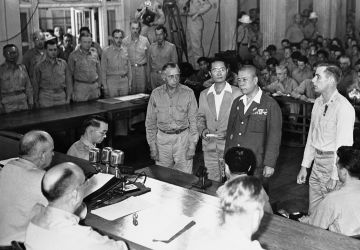
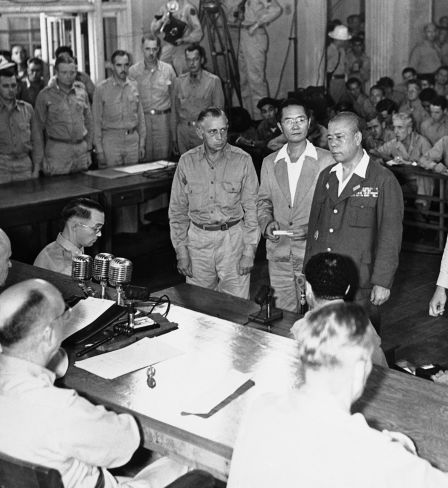
Imperial Japanese Army General Sentenced to Death
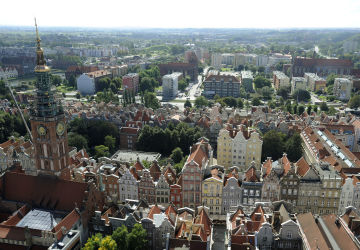
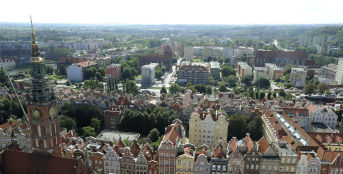
Road to Königsberg
The prosecution at Nuremberg considered the event which marked the beginning of World War II – the Third Reich's invasion of Poland – between 4 and 6 December. The reason for the aggression was the issue of the Danzig Corridor, the territory between East Prussia and the rest of Germany where the Free City of Danzig (now Gdansk) was located. Hitler had stated that he wanted to repatriate the Prussian city in order to physically reunify Germany, but in reality, he wanted to take over all of Poland.
Daily Coverage of Nuremberg Trials
Report of Soviet Prosecution Commission to Reduce Number of Witnesses
Dmitry Astashkin, Candidate of Historical Sciences (PhD) and Senior Researcher at the Saint Petersburg Institute for History of the Russian Academy of Sciences, explains the decisions that were promptly made by the Soviet prosecution team at the Nuremberg trials.

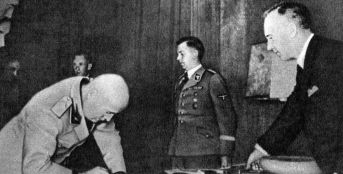
It Would Have Been Better If He Sold Wine
Some suggest that he was not even a true Nazi. But in the early 1930s, he supported Hitler, and during the preparation for military aggression, he became minister of foreign affairs. It was Ribbentrop who signed a non-aggression pact with the Soviet Union. But when Germany violated the agreement, the minister's role collapsed. His attempts to split the anti-Hitler coalition failed. Ribbentrop started plundering the occupied territories and deporting Jews.
First List of Austrian War Criminals Released
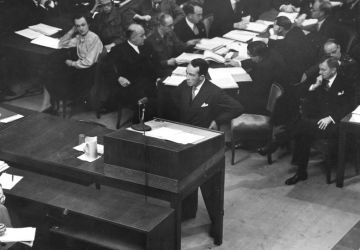
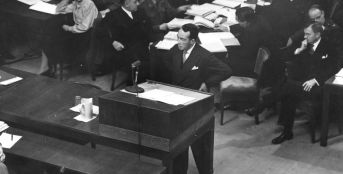
Very English Contrasts
They took up the posts one after another, and they were similar in age, origin, and education. This is where the similarities end and the “struggle of opposites” – political, professional, stylistic, and even epochal – begins.
Prosecutor General of the Soviet Union Scolds Tribunal Members
Having arrived in Nuremberg, Konstantin Gorshenin, Prosecutor General of the Soviet Union, scolded the Soviet prosecutors and Tribunal members for their loyalty to lawyers’ petitions. In addition to this issue, the special commission dealt with a number of important issues from the “Nuremberg routine”.
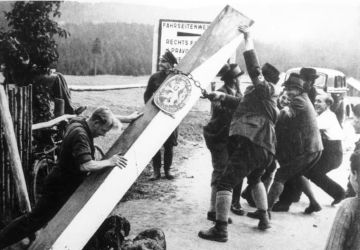
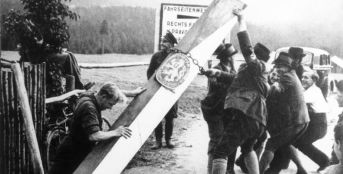
Four Diplomatic Cables on the Eve of the Munich Agreement
On 3 December 1945, the prosecution presented to the Tribunal a package of the Reich’s official documents which proved that the uprising in Czechoslovakia’s Sudeten region had been organised directly from Berlin. In September 1938, Nazi militants among the Sudeten Germans assaulted police stations and customs offices and murdered civil servants. The Czechoslovak authorities firmly suppressed the insurgencies, with many of the culprits being detained. Despite this, as a result of the British-French “policies of appeasement”, on 30 September, in Munich, the Munich Agreement (Munich Betrayal) was signed, whereby the Sudeten region was to come under German rule.
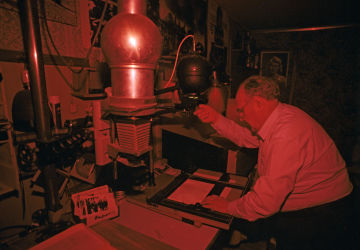
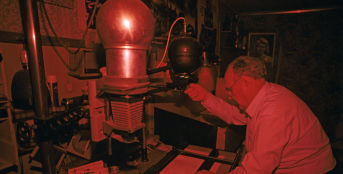
Three Pieces of Red Cloth and Two Bottles of Whiskey
Yevgeny Khaldei – author of unique photographs of the Nuremberg Trials and the only Soviet photographer who captured the Great Patriotic War from the first to the last day.
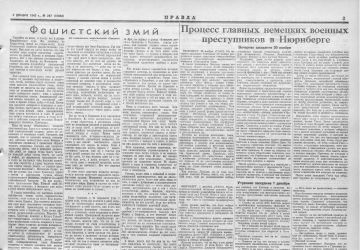
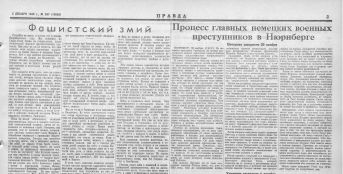
‘Satan Would Hire Any One of Them As Minister’
Leonid Leonov arrived in the ruined city of Nuremberg in the autumn of 1945 at the height of his fame. His report, in the Pravda newspaper, entitled “The Fascist Snake” (The Serpent of Nuremberg), was one of the most brilliant press statements about the Nuremberg Trials.
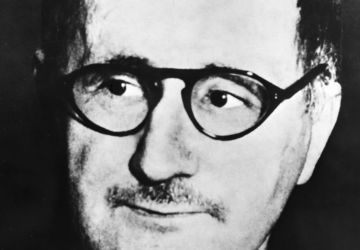
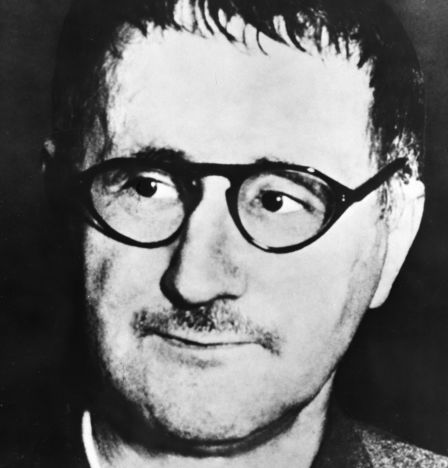
Fear and Misery of the Third Reich
A fragment of Bertolt Brecht’s ‘Fear and Misery of the Third Reich’ was radio broadcast for the first time.
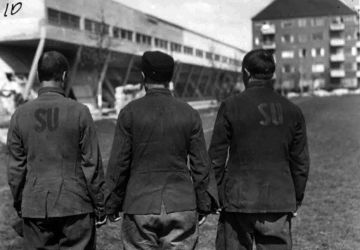
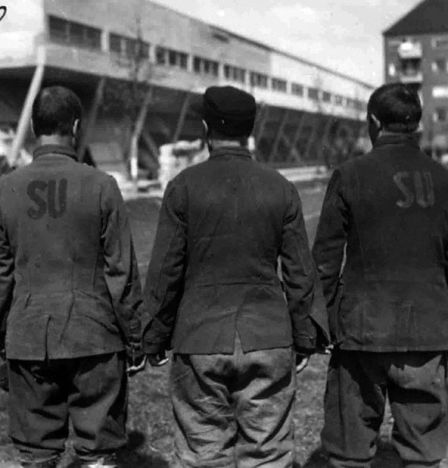
'Killing Those Poisoned by Ideas of Bolshevism'
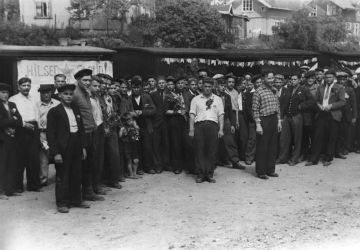
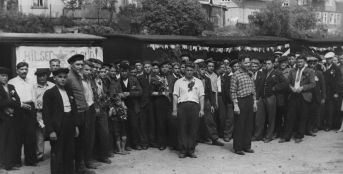
No Rights for the Disarmed
On 30 November and 1 December, the Tribunal examined the first witness at the trial. Major-General Erwin von Lahousen described some episodes of “Nazi kitchen”, where plans to exterminate the Polish population and Soviet prisoners of war were prepared.
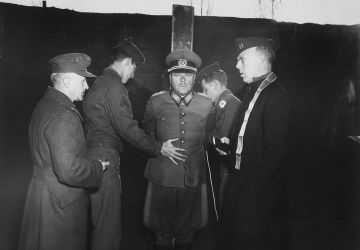
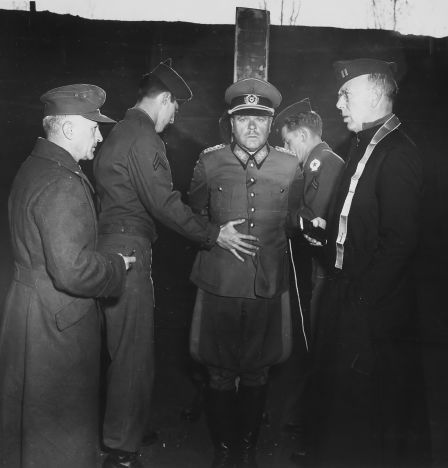
German General Anton Dostler Executed
German General Anton Dostler is executed by a firing squad following a decision by a US Military Tribunal.
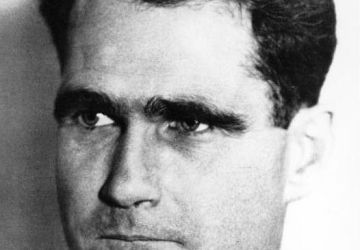
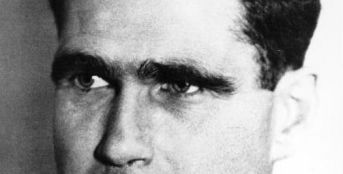
Forgetful and Unforgiven: Rudolf Hess' 'Retrograde Amnesia' Show
A large, ascetic wall clock placed above the defendant's bench showed exactly 4 p.m. The working day on 30 November was coming to an end. The President of the International War Crimes Tribunal, Sir Geoffrey Lawrence, ordered the quarter guard to withdraw all the defendants except Rudolf Hess. They obediently headed for the doors.
Execution of German Submarine Commander
Event: Execution of the commander of a German submarine, Heinz-Wilhelm Eck, who ordered to shoot the sailors of a Greek merchant vessel
Law ‘On the Reunification of Austria with the German Reich’
First Step to World War























